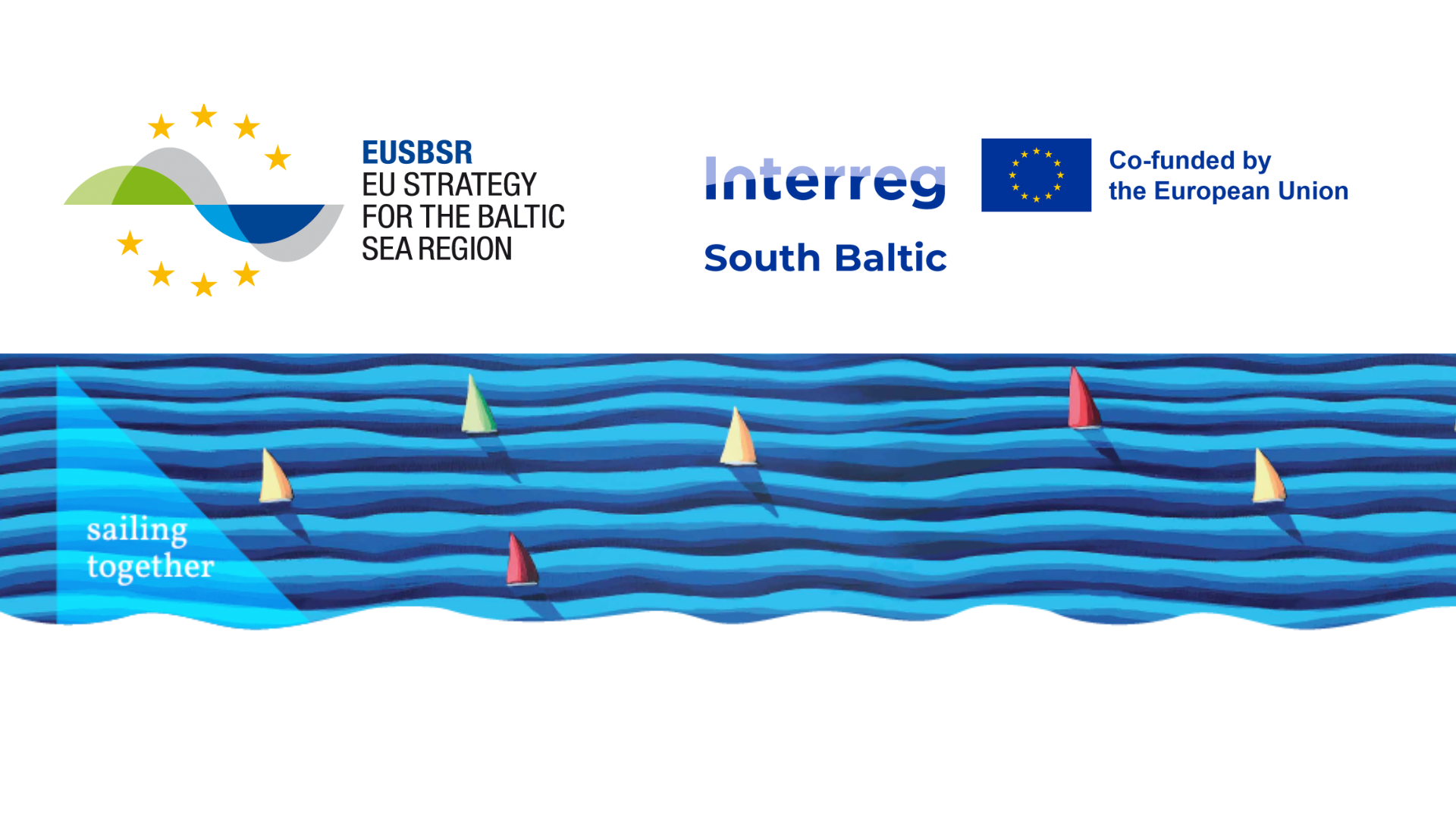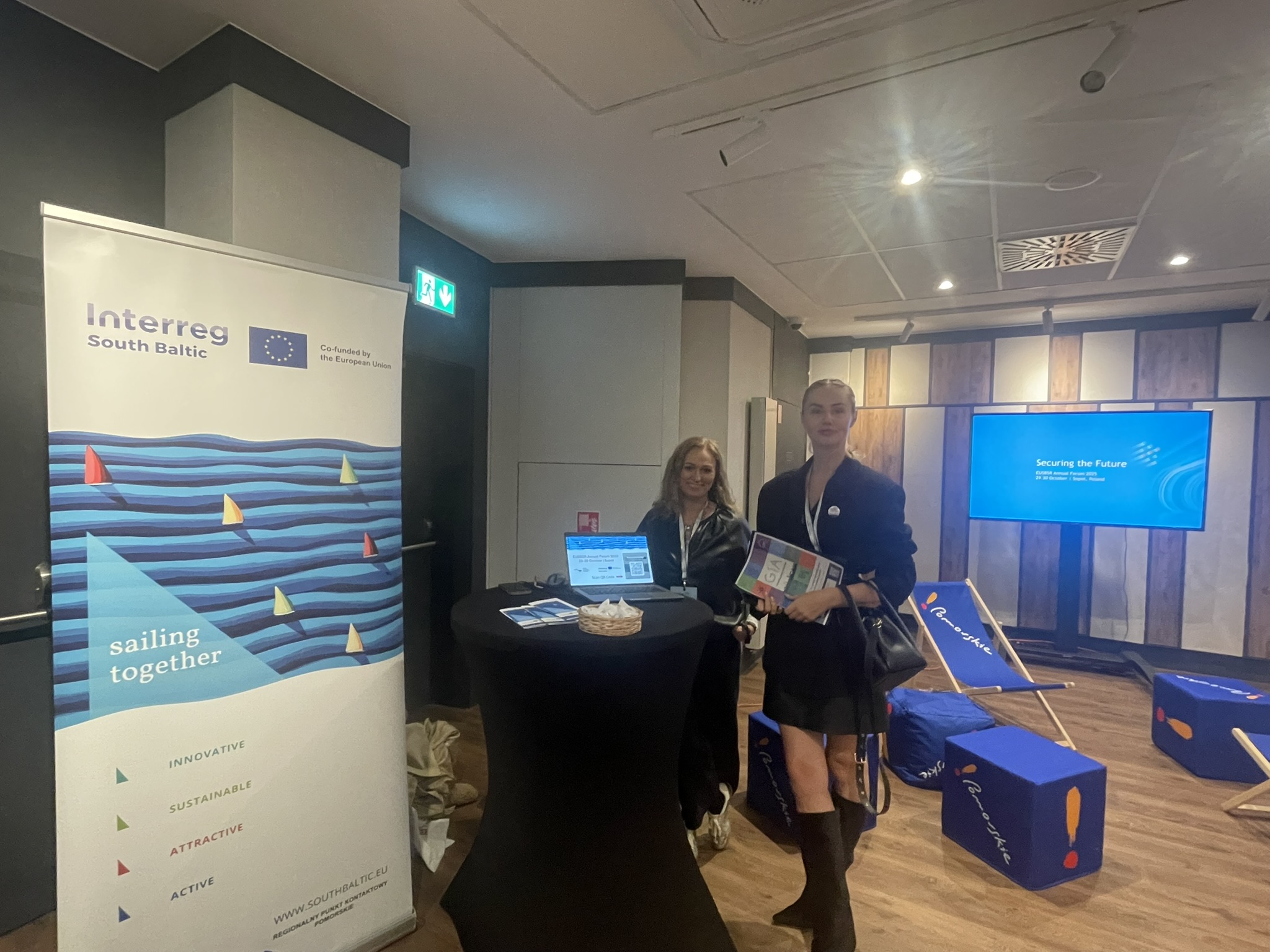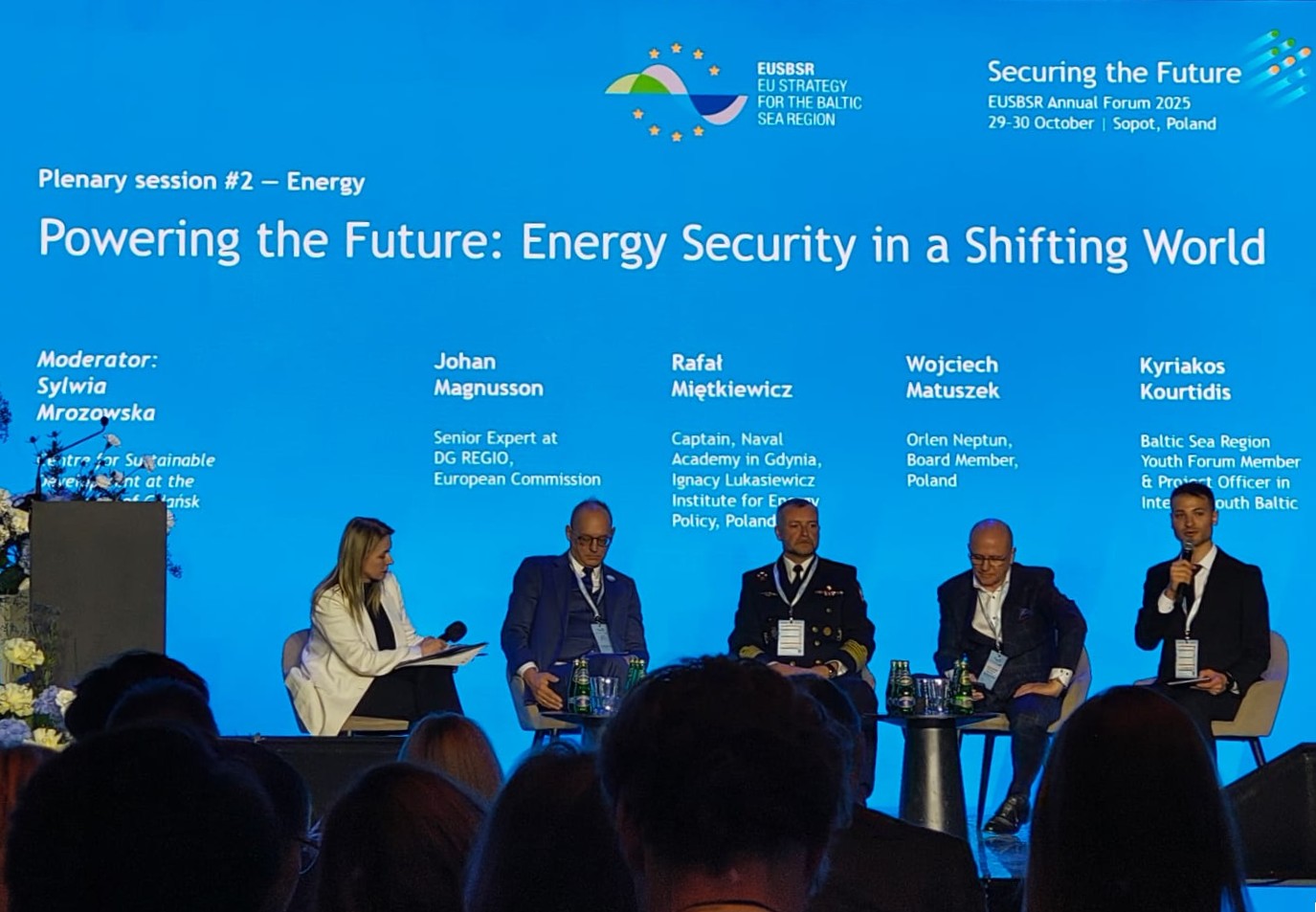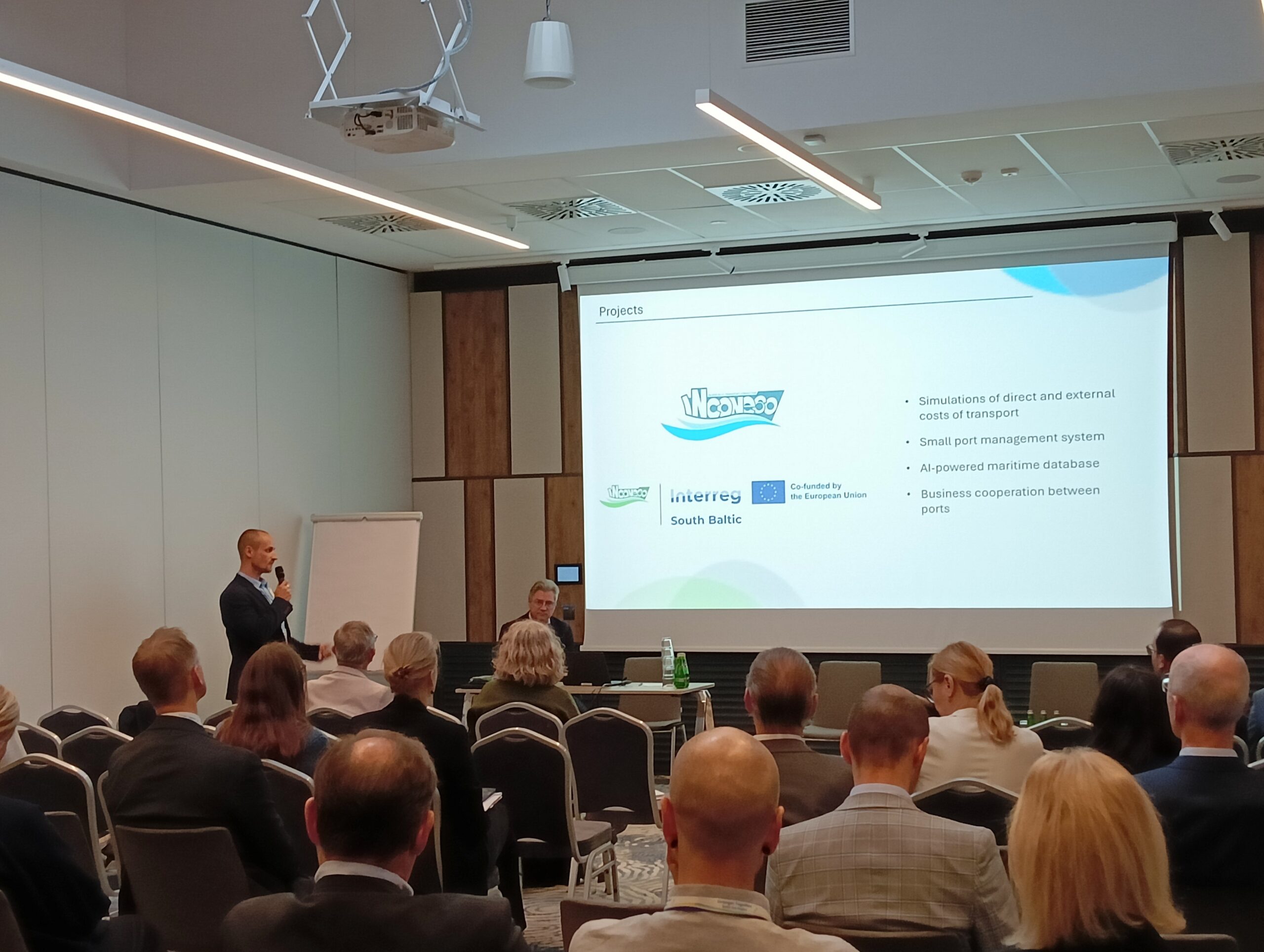The Interreg South Baltic Programme actively participated in the EUSBSR Annual Forum 2025, which took place on 29–30 October 2025 in Sopot, Poland. Under the theme “Securing the Future: Stronger Together – Building Stability in Times of Uncertainty,” the event brought together policymakers, experts, and stakeholders from across the Baltic Sea region to discuss key challenges and opportunities in promoting a resilient and sustainable future.
One of the key sessions involved Kyriakos Kourtidis, Programme Project Officer, and member of both the Baltic Sea Region Youth Forum (BSRYF) and the working group on Energy and Transport. Kyriakos participated in an engaging panel discussion titled “Powering the Future: Energy Security in a Shifting World”, led by Mrs. Sylwia Mrozowska, Head of the Centre for Sustainable Development at the University of Gdansk. The session also featured esteemed speakers, including Mr. Johan Magnusson from DG REGIO, European Commission’s Senior Expert; Mr. Rafał Miętkiewicz from the Naval Academy in Gdynia; Ignacy Łukasiewicz Institute for Energy Policy; and Mr. Wojciech Matuszek, Board Member of ORLEN Neptun.
During the discussion, Kyriakos highlighted the progress of the current programming period (2021–2027), emphasising the important role of the South Baltic Programme in advancing energy transition projects. “We have seen significant progress in energy-related initiatives that support the EU’s climate and energy objectives for 2030, the Green Deal, REPowerEU, and the Fit for 55 package,” he noted. “Our partner projects are increasingly aware of the innovative opportunities these policies create for the energy sector, and the Programme has approved nine projects under the measure ‘Supporting the Transition Towards Green Energy.’”
Kyriakos underscored the value of Interreg’s cross-border approach, which brings together countries, regions, and local actors to address common territorial challenges and seize the opportunities of green energy transition. “Partners contribute their unique expertise, but together they form a mosaic, creating breakthroughs that no single entity could achieve alone,” he explained. “This collaborative effort is not limited to project duration; the relationships fostered across borders will continue to thrive long after the projects conclude.”
In response to questions from the audience, Kyriakos reflected on the lessons learned from previous projects. “The main conclusions from energy initiatives in the Baltic Sea region reveal that cross-border cooperation significantly accelerates the green transition,” he said. “Compared to other cohesion policy instruments like Horizon Europe, Interreg’s territorial approach facilitates closer collaboration among local and regional actors, fostering tangible innovations and practical solutions tailored to regional needs.”
As an active member of youth networks such as BSRYF and Youth4Cooperation, Kyriakos also addressed the vital role of the younger generation in shaping energy and climate policies. “Young people have the energy, creativity, and digital skills to influence policy making today,” he emphasised. “By engaging in youth forums, they can bring fresh perspectives, advocate for sustainable practices, and bolster regional efforts towards a greener future.”
On the second day of the forum, a session organised by the Policy Area Transport, Ship, and Safe Coordinators focused on “Are Our Green Fuels Ready for Green Shipping Corridors?” Rafał Koba from the Incone60Green project led a discussion on the critical challenges and opportunities facing green shipping in the Baltic Sea region. The session addressed the increasing interest of ports in establishing green shipping corridors, yet also highlighted concerns about fuel readiness and safety during emergencies involving green fuels.
Rafał emphasised the progress and importance of the Incone60 and Incone60Green projects, supported by the Interreg South Baltic Programme. These initiatives are essential for advancing digital and green solutions in small and regional Baltic Sea ports, laying vital groundwork for the wider adoption of alternative fuels in maritime transport. Thanks to sustained funding, the projects have successfully developed innovative software and technology platforms, with successful implementation in Danish ports and ongoing deployments across the region.
The innovative SeaTech system, developed within these projects, supports efficient port management, stakeholder integration, and the establishment of renewable fuel corridors. It enhances operational efficiency, reduces environmental impacts, and contributes to the EU’s leadership in a sustainable maritime economy. Additionally, the projects explore eco-friendly terminal construction techniques using recycled contaminated materials, offering ports economic and environmental benefits, and supporting offshore energy sectors.
The panel emphasised that while eFuels represent a promising pathway to decarbonisation, their effective deployment depends on infrastructure readiness, supportive policies, and synergy with digitalisation efforts. The integrated approach exemplified by Incone60Green is crucial for accelerating the Baltic Sea Region’s transition to green shipping corridors and low-carbon port operations.
Throughout the event, representatives from the Joint Secretariat and Contact Point Pomorskie promoted the Interreg South Baltic Programme at the Programme stand, advocating for the ongoing calls. The 5th regular and 3rd small-scale projects (SSP) calls for proposals are open until 12 November 2025. All necessary information about the calls can be found here. Additionally, calls for external experts in quality and state aid are also open, and further details are available here.
More photos from the EUSBSR Annual Forum 2025 are available here.




